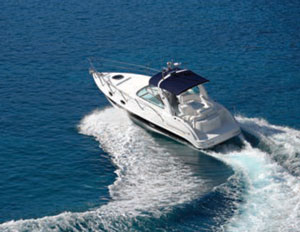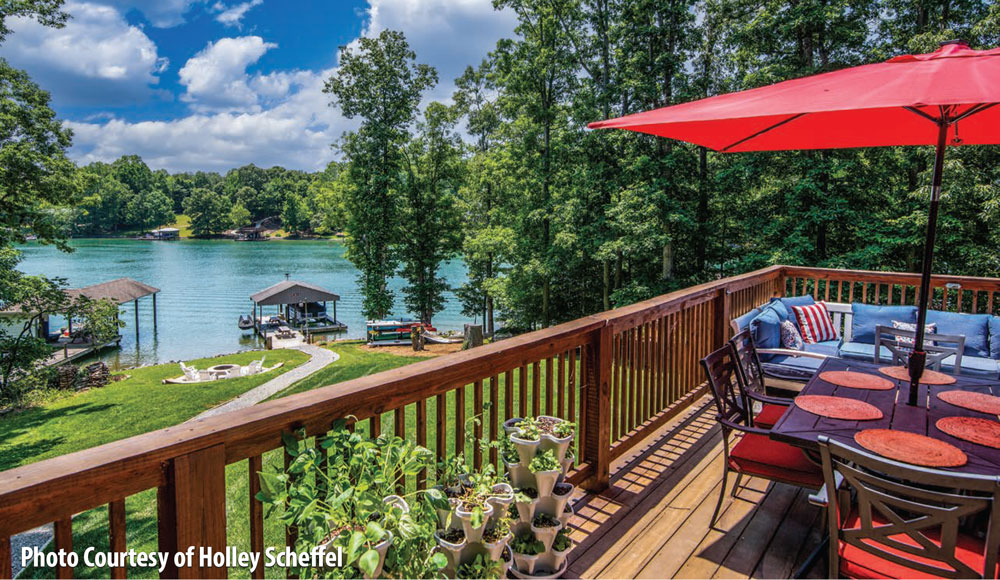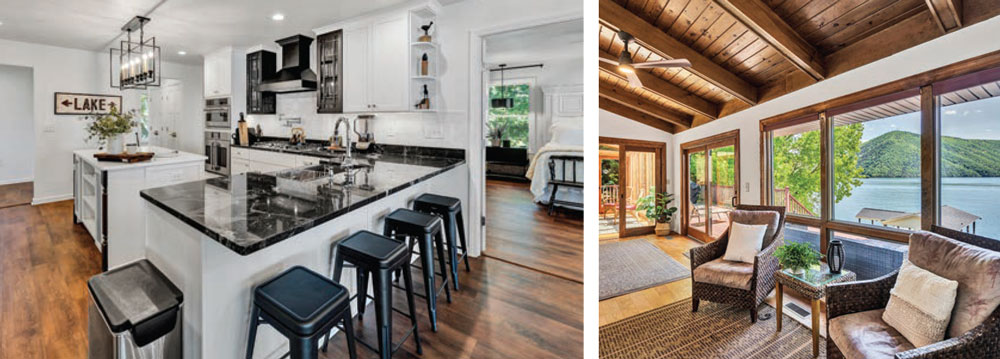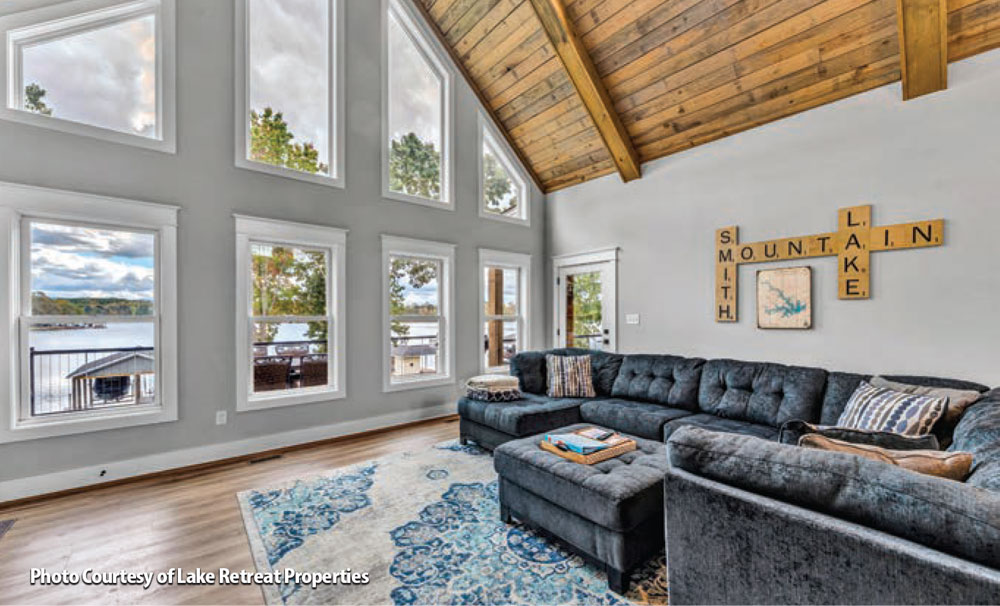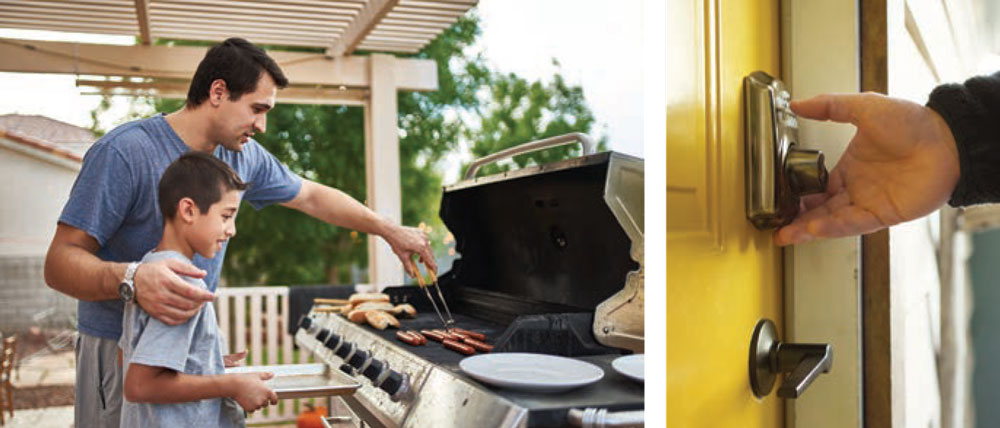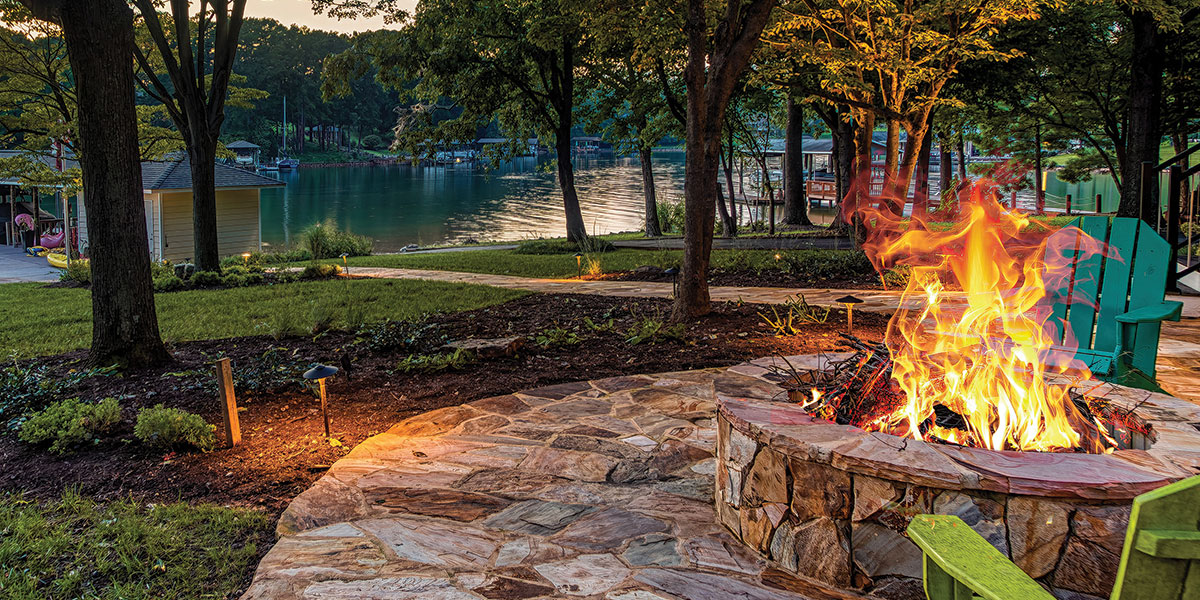 Photo Courtesy of Lake Retreat Properties
Photo Courtesy of Lake Retreat Properties
Before You Take the Leap, Consider Finances, Regulations and Boundaries
 When Holley Scheffel and her husband, Steve, bought their lakefront home in Huddleston in 2017, it was the epitome of what you’d call a fixer upper. But over time, and with the help of lots of handy friends, the Scheffels transformed the cottage into a cozy, upgraded abode — an abode they later decided to share with out-of-towners as a short-term rental through Airbnb and VRBO.
When Holley Scheffel and her husband, Steve, bought their lakefront home in Huddleston in 2017, it was the epitome of what you’d call a fixer upper. But over time, and with the help of lots of handy friends, the Scheffels transformed the cottage into a cozy, upgraded abode — an abode they later decided to share with out-of-towners as a short-term rental through Airbnb and VRBO.
On the other side of the rental industry — but just down the road from Scheffel — is Wil Childress, broker with Lake Retreat Properties. Companies like his provide a host of services to homeowners who want to be as stress-free and hands-off as possible when they rent out their properties.
Whichever path you are considering, Scheffel and Childress agree that there is a lot to consider before letting strangers into your space.
Here, they highlight some of the top things you need to know before dipping your toe into the Smith Mountain Lake rental market.
Get your finances (and expectations) in order
The reason most homeowners decide to rent their homes is simple — extra money. And in the Smith Mountain Lake area over the past five years, many people have had that same idea.
According to Bedford County Community Development Director Jordan Mitchell, there are currently 443 registered short-term rentals in the locality, up from 224 five years ago.
Scheffel (who is also a licensed real estate agent) has noticed the increase. It was more difficult to get bookings after the pandemic: “Be prepared to be competitive,” she says.
Childress also cautions: if you have a rental at the lake, you can’t rely on a steady income stream year-round.
“We are very seasonal here,” says Childress. “Really your prime season is going to be in the summertime and the late spring and early fall.”
You also shouldn’t expect to pocket 100 percent of your earnings.
“You will have to use some of the proceeds to reinvest back in your home to fix things and make upgrades,” Scheffel says.
Other financial checklist items include getting a commercial insurance policy, putting your earnings in a separate bank account (or LLC) and filling out tax paperwork with your local Commissioner of Revenue’s office.
Research, understand and follow local regulations
The next — but most tedious — step in creating a short-term rental is doing your zoning homework.
As the short-term rental industry has grown exponentially here and across the country, localities have had to take a closer look at tightening the rules and regulations regarding these properties.
For example, in 2023, Bedford County passed new changes to its zoning ordinance related to short-term rentals. Some of those changes include registering yearly, submitting a management plan and advertising the accurate number of occupants for the home’s septic system.
Also, be sure to check the private covenants in your neighborhood to make sure there are no restrictions for short-term rentals.
 Focus on major operational decisions
Focus on major operational decisions
One of the biggest issues rental property owners wrestle with is whether to allow pets and what other amenities to offer.
“Typically, your most searched features are homes with hot tubs and homes that are pet friendly,” Childress says. “But there are drawbacks to both of these. There are higher utility and maintenance costs associated with hot tubs, and pets will understandably lead to more wear and tear.” You may want to consider a damage deposit.
Another major operational component is figuring out who is going to clean your rental after each booking — which is another expense.
“That’s probably one of the biggest obstacles we have in the area,” Childress says. “We are not a heavily populated area so there’s not an abundance of cleaners or people for maintenance. That’s another perk of homeowners who work with rental companies like us.”
Streamlining how your guests will check-in and check-out is also a top item on the to-do list. Scheffel opted for no-contact check-in and installed keypads on her doors. She changes the code after each guest.
Set your boundaries
Childress encourages owners to keep as much space open as possible for tenants to use.
“The less you lock off, the better,” he says, adding that this includes garages and dock houses, which can be nice amenities to offer tenants if they are usable.
Of course, you should find somewhere in your home to store supplies — such as cleaning products.
Scheffel has two locked closets that her cleaning team can access.
She also recommends removing anything from the home that you want to see again. While it’s few and far between in the rental world, sometimes things disappear.
“Before rental season starts, take video footage of your rental for insurance purposes, and you can confirm if anything goes missing,” she says.
Prepare for wear and tear
“Most renters take care of the home just like it’s theirs. But there’s always a couple of renters every year that slip through the cracks,” Childress says. “Even in those cases, it’s typically just a home that’s left dirtier than usual.”
Scheffel adds, “Renting out your home is not for everybody. You have to be OK with knowing there is going to be damage.”
She describes normal wear and tear as scratches on the walls or someone accidentally breaking a plate. Larger issues — such as deep tire tracks in the lawn or breaking a hot tub due to misuse — would be something you would need to address.
Childress says operators should also expect higher utility costs.
“People want to use the property they are renting. They aren’t going to be as conscientious as the homeowner will be with the lights being off and the thermostat being highly controlled,” he explains.
As strange as it sounds, he also recommends having a back-up grill. This is one of the top items they have to replace due to wear and tear, and you don’t want to leave renters hanging, especially in the summer season.
If something important breaks or there is a big issue in the rental, your renters will need help quickly. Be prepared to be on-call or use a property manager that has an emergency line.
Communicate clearly and honestly on your listing
For short-term rental operators listing on websites such as Airbnb, professional photos and clear descriptions are a must. You should show every room in the house at minimum and multiple angles of larger entertaining spaces and outside.
“I am super clear and intentional with what I write in my listing because my reviews are what sell my listing,” Scheffel says. “So if I’m overselling something and people get there and say, ‘wait a minute, this wasn’t in the pictures or the description,’ then I’m setting myself up for negative reviews.” ✦
Go the extra mile with these hospitable ideas
- Welcome basket — Gather up your favorite local goods (honey, wine, etc.), and throw in some local business coupons.
- Information binder — This can include information about boat rentals, places to go, and restaurants but also emergency information such as the closest hospital, urgent care, etc.
- Provide a few essentials — Having a little bit of toilet paper, hand soap, and dish soap on hand can really help your renters transition easily once they arrive.

What about a boat rental?
It’s a good idea for short-term rental owners to provide information about boat rentals in the Smith Mountain Lake area — as well as an overview of the regulations.
“I know everybody wants to get on the water and have a good time, but if you are not safe, you can get hurt,” says Jake Blair of Parrot Cove Boat Rentals.
According to Blair, anyone without a boating license can get a temporary license after watching a 15-minute video about safety and navigation rules.
Blair also says it’s important for renters to know that anyone 13 years of age or younger must be wearing a Coast Guard-approved life jacket at all times. For those 14 and over, a life jacket must be carried on the boat.